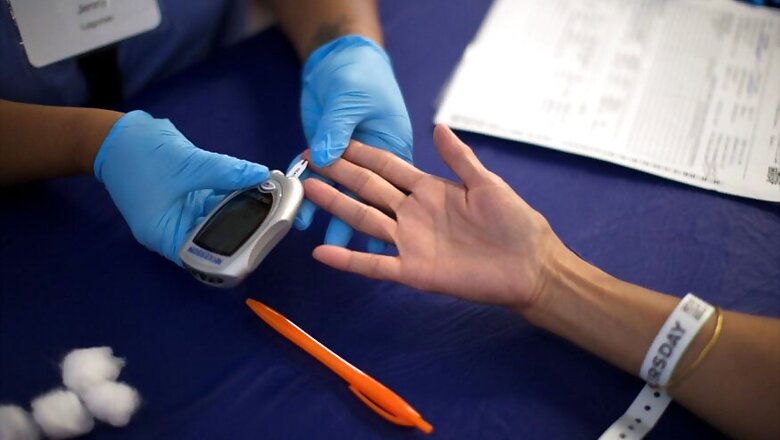
views
Eating a meal rich in calories for dinner can increase the risk of diabetes as well as lead to poorer cardiovascular health, researchers have warned.
The findings showed that eating the majority of a person's daily calories in the evening, post 6 p.m. may lead to an increased risk of developing pre-diabetes and high blood pressure, which can lead to diabetes and affect the heart.
Every one per cent increase in the number of calories eaten after 6 p.m. — about 20 calories in a 2,000-calorie daily diet — was associated with higher fasting glucose, insulin and insulin resistance, all of which are associated with an increased risk of diabetes.
Eating 30 per cent or more of a day's calories after 6 p.m. was associated with a 23 per cent higher risk of developing high blood pressure and a 19 per cent higher risk of becoming pre-diabetic.
"There is increasing evidence that when we eat is important, in addition to what we eat and how much we eat," said lead author Nour Makarem, a postdoctoral student at the Columbia University in New York.
"In our study we show that if you eat most of your calories before 6 p.m., you may have better cardiovascular health.
"Your meal timing matters and eating earlier in the day may be an important strategy to help lower the risk for heart disease," Makarem said.
However, night-time eating was not associated with being overweight and obese or having central adiposity (fat).
For the study, the team analysed the meal timing of 12,708 participants, aged 18 to 76, from the Hispanic Community Health Study/Study of Latinos.
More than half of the study participants (56.6 per cent) reported consuming more than 30 per cent of their food intake after 6 p.m.
The results will be presented at the American Heart Association's Scientific Sessions 2018 in Chicago.
















Comments
0 comment